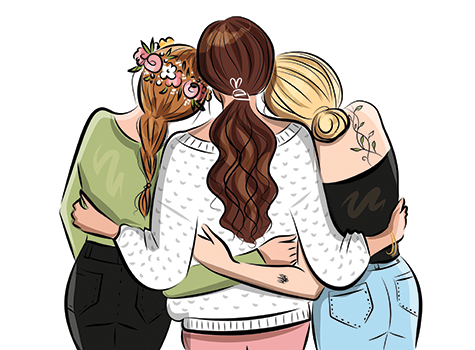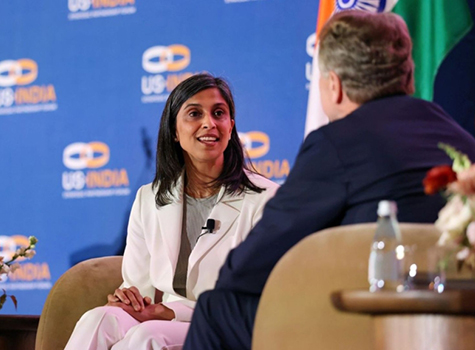
500 million women face period poverty across the world. Where specifically could this problem be occurring? Everywhere. Even in our own city. Does this surprise you? Many people are unaware of period poverty or unsure of what it means. The premise of this issue is people are unable to afford menstrual products, such as pads and tampons, or have consistent access to clean water and private toilets. Women in these situations suffer every month despite the fact that periods are healthy and normal.
The lack of access to vital period resources has caused students to miss over 50 schooldays every year and adults to miss a similar number of workdays. The inability to attend school or jobs keeps the women in the vicious cycle of poverty. Students will fall behind in their classwork and employees with tasks, both will struggle to keep up. Only seven countries have menstrual leave policies, many unpaid. Not only are these people’s education and income compromised but so is their safety. When products such as pads and tampons are unattainable, women who menstruate resort to whatever they find around them. This includes rags, sponges, newspapers or even leaves. This becomes a sanitary issue; not only is this extremely uncomfortable to use but it can also cause severe infections, such as urogenital infections, vaginosis or urinary tract infections. No one deserves to put their health at risk for a natural bodily function.
Similarly to the need to drink water, eat food, and access shelter, the need for period products is vital to survival. Mensuration is an important and inevitable part of a woman’s life; it indicates that she is healthy and brings other health conditions to her awareness. It is important that our society supports those who menstruate by having easy, inexpensive access to period products. This is the first step to becoming a more equitable society. Continuing to avoid the topic of period poverty or menstruation, in general, only digs a bigger hole. Creating awareness will assist in the destigmatization of this issue and help society accept that period products are fundamental resources.
Since this issue lacks attention, many people may be wondering how come these items are so expensive and inaccessible. This is due to a phenomenon called the “tampon tax.” This term is used because menstrual hygiene products are listed as luxury items and are therefore taxed at the highest rate. Those who menstruate will confidently debunk this idea, as periods are not a luxury and often cause extreme discomfort. Ideally, goods necessary during menstruation essentially would be classified as tax-exempt health products like prescription medicines or food.
As a young Indian American woman living in North Carolina, I have always been unsettled by the shame around periods so when I heard about Days for Girls, I was eager to join their efforts. Days for Girls is a non-profit organization which has teams across the world who sew and create menstrual kits that include underwear, soap, reusable pads, and more. They also help spread awareness and educate the recipients of the kits. Many of the girls facing period poverty have never learned enough about their body to understand menstrual cycles, due to being seen as “dirty” or “unnatural.” Every time I volunteer or conduct more research on this topic I am further enlightened and cannot help but share what I have learned with others.
Although many local organizations have been supportive, my request for holding a donation drive of period products was turned down by some. This was due to a reluctance to discuss periods with young children and boys who were not aware of the topic. To me, this reinforced the idea that people think of periods as dirty or something that should be hidden. If this mindset continues to stay, women will continue to suffer. Periods are natural and should be accepted as that. Spreading awareness helps get the message to those who can help women suffering from period poverty as well as breaks the stigma of periods.
For those who do not experience this on a daily basis, these problems may seem distant. However, that is far from true. Many choose not to speak up about this issue because they are embarrassed or have been shamed for this. If you, or someone you know, faces period poverty, menstrual aid pantries are located in North Carolina. Locations include The Kindness Closet, On the Spot, Period Kits North Carolina, and Katey’s Kits. Iredell Statesville Schools are a part of the Red Cart Project which provides items to students at school. College students specifically struggle with finances and can go to their university’s pantry to access products. In order to find more resources, contact the local service directory in your area by calling 211 or visiting 211.org.
If you wish to help and are able to, you may donate time or money to organizations such as Days for Girls, The Pad Project, or any of the North Carolinian menstrual aid pantries listed above. Another accessible way to help is conduct research on politicians and vote accordingly.
As a citizen you have the power to help make decisions such as making period products easily and readily available. Writing to local politicians to make your values and this issue known is another great way to help. Along with helping hands, we need to hear your voice.
Rika Parui is a high school senior who is passionate about raising awareness about women’s issues. Contact: rikaparui24@gmail.com



